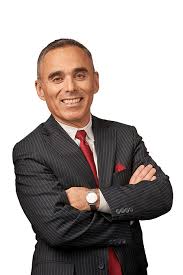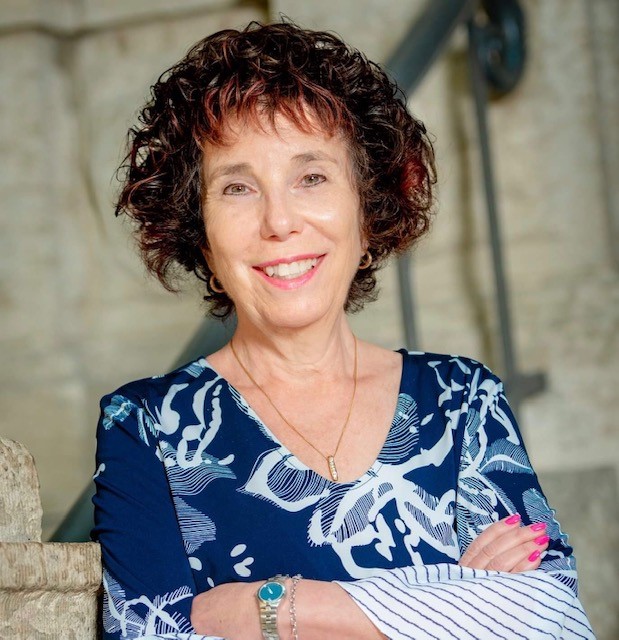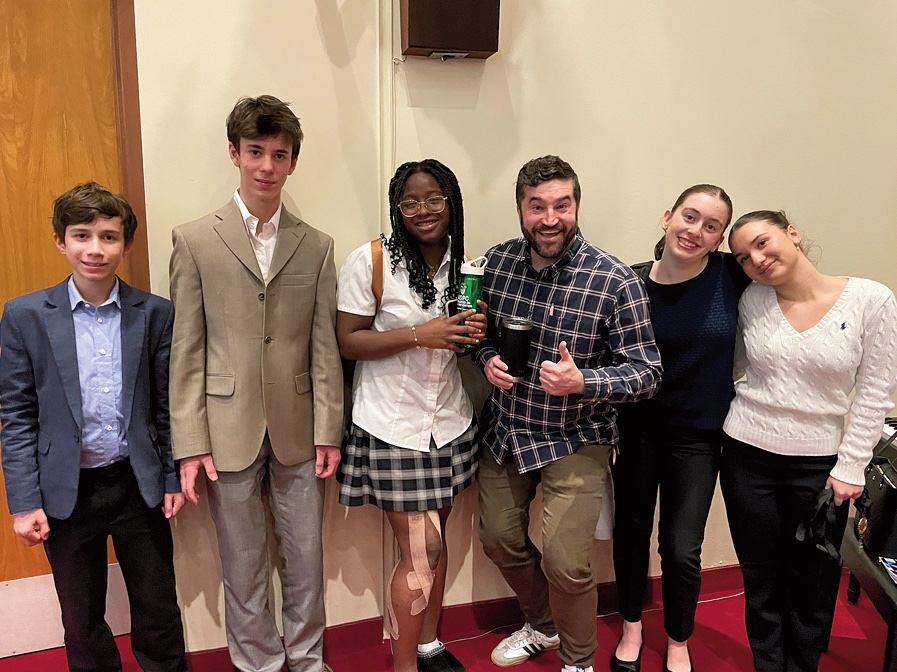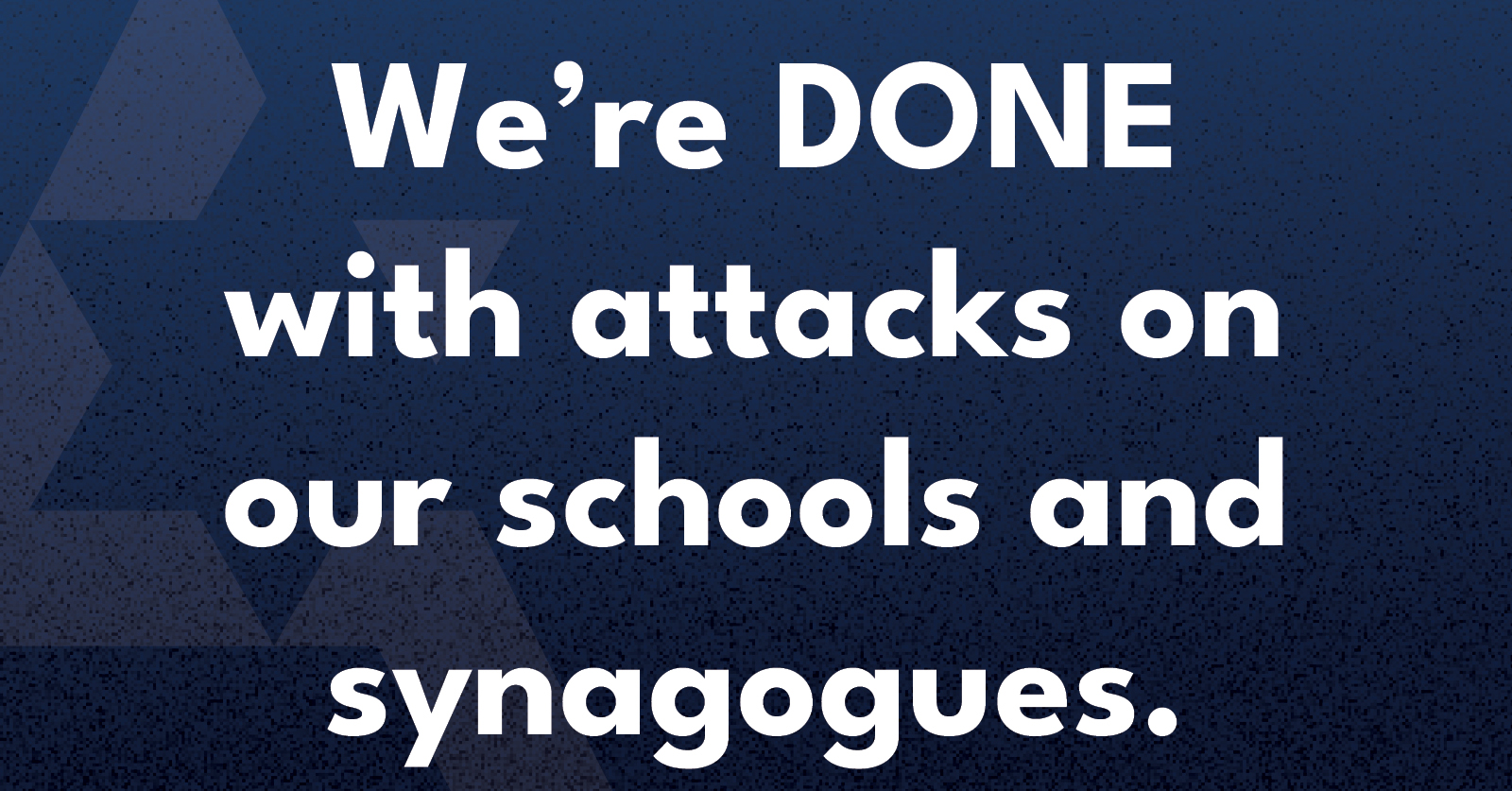Local News
Lawyer Lawrence Pinsky has played a role in combating anti-Israel discrimination at U of M

By MYRON LOVE Lawrence Pinsky K.C. , the Progressive Conservative candidate in the recent Tuxedo by-election to fill the seat held by former Premier Heather Stefanson, says that when he was first approached to let his name stand, he initially demurred.
“I said that I would try to find someone else,” he says. “I approached five other potential candidates. All refused. Two cited concerns about anti-Semitism. So I said that I would run.”
But it is not only in politics that Pinsky has answered the call. In fact, the partner in the law firm, Taylor McCaffrey, has been answering the call to help students at the University of Manitoba who felt targeted for supporting Israel. For several months now Pinsky has been providing his legal services pro bono to Jewish students fighting discrimination at the University of Manitoba since shortly after the Hamas attack on Israel on October 7.
The son of the late Harry and Dvora Pinsky grew up in West Kildonan. He earned his LLB at the University of Manitoba and was called to the Bar in 1993. He became a partner at Taylor McCaffrey in 1998.
Over the past 30 years Pinsky has built a solid career as a leader in the area of Family Law. Among the high points of his career have been his role as co-founder, director and president of FAMLI (the Family Arbitration and Mediation Legal Institute). He was also a co-founder and co-chair of the National Family Law Arbitration Program – and he served ten years as a member of the Manitoba Human Rights Commission adjudication panel.
As with almost everyone else in our Jewish community, Puisky was appalled by the horrors of the Hamas-led attack on southern Israel on October 7. “My wife Jennifer and I attended the community-wide rally in support of Israel shortly after,” says Pinsky, whose father was a Holocaust survivor. “What was happening on the streets of our cities was scary. I felt that I had to act.”
His first action was to go to Israel in November with Jennifer – under the auspices of Sar-El – and volunteer at the Tel Hashomer army base in the Tel Aviv area.
Upon his return home, he began working with Jewish students facing both physical assaults and discrimination at the U. of M.
“Several students reached out to me,” he says. “My colleagues and I began working with B’nai Brith and Hillel to try to help the students. We met with several students and professors and others in the community.”
One fact he learned, he says, is that there are about 3,000 Israelis living in Winnipeg. (Consulting Editor Bernie Bellan comments: That assertion is simply not borne out by a reference to the results of the 2021 Census. According to the census, only 1350 individuals in Winnipeg gave “Israeli” as one of their ethnic origins in answer to the question: “What is your ethnic origin?” Furthermore, It was possible to give more than one answer to the question about ethnic origin on the census – and you were allowed to list up to six different ethnic origins, but if someone who had lived in Israel and was born in Russia or Ukraine or anywhere else for that matter didn’t give “Israeli” as one of their ethnic origins, the figure of 3,000 Israelis living in Winnipeg is simply not supported by any evidence.
The Jewish Federation of Winnipeg had long been embellishing the number of Jews living in Winnipeg – with spokespersons such as former Federation President Gustavo Zentner claiming a figures as high as 17,000 Jews in Winnipeg at times in the past. In fact, after a thorough analysis of the 2021 Census, I found that, at an absolute maximum, there were no more than 14,270 Jews living in Winnipeg in 2021. And, that figure took into account a combination of individuals who said they were “Jewish” – either by ethnic origin or by religion. For instance, of the 10,700 individuals who gave Jewish as one of their ethnic origins, a full 1,245 said they were “Christian” by religion.
One other fascinating finding from the 2021 census was that, of the 1350 individuals who gave “Israeli” as one of their ethnic origins, only 855 also said they were “Jewish” by religion! A full 385 of those individuals said they had no religion at all, while 105 said they were Christian by religion. Further, only 11,170 individuals in the census said they were “Jewish” by religion in Winnipeg. I’ve long argued that many people exaggerate the number of Jews, also the number of Israelis living in Winnipeg – without having any empirical evidence to support their claims. But, if it makes you feel better to say there are 17,000 Jews in Winnipeg and 3,000 Israelis, go ahead and trot out any figures you might like. Just don’t claim that those figure are supported by any evidence.)
Pinsky points out that discrimination against Zionist students and faculty by the University of Manitoba Student Union pre-dates October 7 by a number of years, but the situation has noticeably worsened over the past eight months. Among the incidents he cites have been anti-Semitic posters being put up at the Asper School of Business, a Jewish student being spat upon, sexually harassing insults being hurled at a Jewish female student, hostage posters being torn down, discriminatory differential standards at The Manitoban (the University of Manitoba Student Union newspaper) being applied against Jewish Zionist students, the refusal or failure of the editor of The Manitoban to publish articles supporting Israel despite being provided articles and requests to do so, and the suspension on February 28 by UMSU of Students Supporting Israel because of a comment made by Bassam Eid, a Palestinian Muslim human rights campaigner who spoke at the university under the auspices of SSI and others.
Eid’s “offensive” statement (according to one Muslim student who made the complaint that got SSI suspended) was in response to a question from the audience. Eid said that “the major problem here, I call it the ideology of the Muslims. When it comes to ideology the Muslims are blind”.
Notes Pinsky, who also helped SSI get reinstated (on March 27), the SSI should never have been held responsible for Eid’s comment. “The suspension was in violation of UMSU’s own guidelines,” he says. “In addition, Mr. Eid made the comment in response to a question. The SSI organizers had no possible way of knowing or foreseeing Eid’s answer.”
The most recent disturbing situation on campus was sparked by an emergency session of the UMSU board to consider a motion that would have approved a new definition of anti-Palestinian racism – as defined by the Canadian Arab Lawyers Association – which appears to contradict existing UMSU policy, and which would essentially ban any criticism or disagreement of the official Palestinian narrative. Pinsky alleges that the student union proceeded in a manner that is contrary to existing UMSU bylaws.
“This is utter nonsense,” he states. “It is an attempt to rewrite history and a violation of freedom of speech. This is obscene.”
On April 5, Pinsky and his colleagues filed on behalf of his clients – a group of Jewish students at the University of Manitoba – a complaint with the Manitoba Human Rights Commission against the University of Manitoba Student Union (UMSU), the Manitoban, and other named individuals.
Whereas Jewish Zionist students and faculty at other universities in Canada and the United States beleaguered by systemic anti-Semitism have gone to court to seek redress, Pinsky explains that the University of Manitoba students sought intervention by the Manitoban Human Rights Commission instead because the MHRC writ is broader in this province.
“The recent actions of UMSU, The Manitoban and named respondents in regard to Jewish students and their supporters is unacceptable,” Pinsky states. “They are a violation of the Human Rights Code, according to the complaint that was initiated. UMSU, The Manitoban and the other named respondents would seem to have certain requirements that are applied only for Jewish Zionist students, restricting them in a way that would be unacceptable for any other groups . My clients are fighting to make sure that the UMSU, The Manitoban and the University generally becomes an environment where all students are treated equally and in a manner free of discrimination. Sadly, we have a long way to go.”
The vote on the UMSU motion was initially put off for two weeks to give both advocates and opponents more time to make their case and, shortly after the MHRC filing, was shelved indefinitely.
While he concedes that it could take several years before the MHRC puts out its report and recommendations on the matter, he is hopeful that he, his colleagues, and his clients will be able to work with UMSU, and the other respondents to find a positive way forward.
“I remain optimistic,” he says.
He adds that this case is important not only for the Zionist students on campus. In principle, any group could be similarly marginalized against,” he says. “I stand against all forms of discrimination.”
As to the situation at the many others campuses across Canada and the U.S. being consumed by anti-Israel hate and anti-Semitism, Pinsky comments that “The bottom line is that it is up to all universities administrations and student unions and all of their mechanisms and outlets to take the lead in acting strongly against hate before things escalate to the level that is roiling campuses such as Columbia, Harvard and McGill.
”To the extent that they fail to do so, governments should be enforcing or passing appropriate legislation to ensure a safe environment for all students without exception for hate targeted at Jewish students who happen to abide by the creed that the oldest still existent indigenous people of that land, have a right to the autonomy of a state there.”
Local News
Cheryl Hirsch Katz, Jewish Child and Family Service’s longest serving staffer, set to retire at end of the month

By MYRON LOVE “I loved working at Jewish Child and Family Service,” says Cheryl Hirsh Katz, who is due to retire at the end of June. “I have always appreciated the warm and welcoming atmosphere here. I feel that the people working here are my extended family. I am going to miss my colleagues”.
“I have derived great satisfaction over the years to have been able to help many people in our community of all ages through my work at JCFS,” she continues.
After 44 years at the agency, Katz, the longest-serving member of the staff, was given an appreciative send-off at the JCFS’s recent (June 23) Annual General Meeting at the Shaarey Zedek Synagogue.
The daughter of Art and Bess Hirsh, Cheryl grew up in Garden City. She attended Peretz School, then Jefferson Junior High and Garden City Collegiate. She joined the staff of JCFS in 1981, shortly after receiving her Bachelor of Social Work degree.
She earned an MSW in 1990.
“I chose to become a social worker,” she recalls, “because I always wanted to be able to help people.”
Katz was originally hired by JCFS to work with newcomers. After a couple of years, she was given responsibility for looking after the needs of older adults.
“I really enjoyed working in older adult services,” she says. “That is where I spent the bulk of my time at JCFS.”
After ten years as a case worker, she was promoted to a supervisory role. Later, she was also given responsibility for mental health and addictions programming and settlement services, while keeping the older adult files under her purview.
“As a supervisor, I wasn’t directly involved with individual clients,” she points out. “I was more involved with programming. Among the programs for seniors we organized were – for example – sessions on elder abuse, digital storytelling and memory loss.”
She notes that one of the trends she has seen over the last 44 years is that people are living longer and living in their homes longer. A lot more of our clients are living well into their 90s,” she observes. “We have had to continually expand our staff and the services we provide in order to accommodate the growing demands of an aging population.”
She also spoke of the mental health needs of seniors and aging Holocaust survivors.
She says that she has mixed feelings about leaving JCFS. “After so many years working full time, I am going to have to create a new routine,” she comments.
She notes that, now that she is retired, she will have more time to spend with her parents – who are in their 90s.
And then, there are the two dogs to look after. “I will have time now to try new activities,” she says. “ I might learn to play mah-jong.”
She speaks about maybe doing some traveling – although her husband, Murray, is still working full time.
(She and Murray have one daughter, Farah.)
“Retirement may also include some volunteering,” she adds.
It is quite likely, she will be continuing her association with JCFS but in a volunteer capacity.
Local News
Gray Academy students shine in provincial, national debating competitions

By MYRON LOVE It has been another good year for Gray Academy’s high school students who participated in provincial and national debating competitions. The best results were recorded by Grade 9 student Noa Mednikov, who finished fourth overall nationally, fourth in interpretive reading, and fifth in persuasive speaking at the junior National Public Speaking Championship in early May in Vancouver.
Last October, in the Junior Provincial British Parliamentary Championship – which was held at St. John’s-Ravenscourt – Noa and her partner, Raya Braunstein, finished third as a team while Raya placed third in individual debating.
Their fellow Grade 9 student Maxim Moscalenkov tied for first in persuasive speaking in Vancouver, while the Gray Academy team of Gabe Tapper and Aaron Koplovich finished fifth. Aaron also finished fifth in his individual debate.
Earlier, in March, Maxim finished fifth in the Provincial Juniors debating competition, which was held at Balmoral Hall He and his debate partner, Nate Shenkarow, finished seventh among the teams entered. Last November, he and partner, Ethan Tenenbein, finished seventh in the Junior Prepared Tournament – just behind the Gray Academy team of Nate Shenkarow and Jack Kay.
At the senior high level in that competition, the team of Jacob Tenenbein and Jonah Novoseller finished fourth and Jacob was recognized as fifth best in an individual capacity. Jonah and Jacob also paired up to win the Asper Cup, which was held at their home school.
Jacob represented Manitoba at the Junior National Speech Championship in Vancouver in May and, last October, he and Grade 12 Gray Academy students Julie Krozkin and Daniel Bokser represented Canada at an international debating tournament in Bermuda.
Gray Academy’s debating program was introduced by Linda Martin in 2003. She also led the debating teams at Balmoral Hall. In 2011, Martin was succeeded by Gray Academy high school English teacher Andrew Kaplan.
“Andrew has done a wonderful job with the debating program” says Martin, who has a debating trophy at Gray Academy named in her honour, as well as a provincial trophy for best individual junior debater. “Over the years, Gray Academy students have done very well in many local, national and international competitions,” she adds.
About three weeks ago, this writer had the opportunity to sit down with Andrew Kaplan and six of the school’s top debaters while they discussed the benefits of learning how to debate. According to Noah Strauss – who competed in the Junior Provincials at Balmoral Hall in March, public speaking leaves him with a feeling of accomplishment.
“It’s a good skill set to have,” he observes. “It builds confidence.”
“A benefit of being able to debate is that you learn how to convince people that you know what you are talking about,” adds Maxim Moscolenkov.
Raya Braunstein notes that being able to debate is a skill that she expects to be helpful in many university courses which she may choose to take.
As Andrew Kaplan notes, the ability to express yourself has a great impact in whatever career you choose to pursue.
He points out that debating is compulsory at Gray Academy for all Grade 7 and 8 students – and students can continue debating as an option in the higher grades
Of course, competitive debating is not for everyone. For those students who opt to take that path, the journey begins with internal school debate competition – with the top debating teams and individuals qualifying for local tournaments and – potentially – beyond.
Andrew Kaplan reports that a small number of high schools in Winnipeg and southern Manitoba have active debating programs – including St. Johns Ravenscourt, St. Paul’s High School, St. Mary’s Academy, Garden City and Maples Collegiates in the Seven Oaks School Division, St. Maurice (a Catholic School), as well as Morden Collegiate and Dasmesh, a Sikh private school.
Kaplan expresses his appreciation to the Asper Foundation and an endowment spearheaded by the Kives Family for providing funding for the Gray Academy debating program – as well as the Andrew Slough Foundation – which was established by his friends in memory of the outstanding former Ravenscourt student debater and lawyer who passed away suddenly two years ago at the still young age of 38.
I am confident that our Jewish community can look forward to the continued success of Gray Academy’s star debaters and to the continual emergence of future stars as the times goes by.
Local News
Antisemitism has crept into grade school in Canada

Antisemitism in Canada has moved beyond protests and politics; it is now entering classrooms and altering how Jewish children see themselves functioning within them.
A a university student I have observed the experience of my younger brother in grade eight as a Jewish student. Over the past few months, his school has been at the center of several deeply troubling incidents that have made him feel unsafe in our parks, community, and even his school. Swastikas were drawn around the community, in parks and ponds. Additionally, an older man, who claims to be a pro-Palestinian influencer, stood outside his predominantly Jewish school wearing a keffiyeh, filming a video which then circulated between students on TikTok.
This same man later showed up to our local Jewish community center in keffiyeh to allegedly watch his son play basketball where my brother and many of his classmates go for their lessons, basketball games, and Jewish events. These moments made him and his peers feel watched and targeted just for being Jewish. Local political representatives condemned the incidents and raised awareness about antisemitism, but the fear among students didn’t go away. The feeling of being targeted for simply existing has been taught to my brother, something my parents had tried their hardest to escape from.
Most recently, my brother was chosen to represent his school at a regional science fair. When one of the judges arrived wearing a keffiyeh, he froze. For many, including my brother after the incidents he has faced, the keffiyeh represents a political message. But even more so for my younger brother, it is tied to the fear and intimidation he had already experienced. He felt nervous, distracted, and unsure of how to act.
This is not about silencing political expression. It is about a child who came to share his ideas and left feeling uncertain and afraid. It is about the atmosphere forming in Canadian schools, where Jewish students are being made to feel targeted and unwelcome.
His school made an effort to address the incidents, but the impact is lasting. Posts on social media, much can be very vague at times about inclusion cannot fully undo the feeling of being singled out. A kind word from a teacher does not erase the fear that builds when threats are left unspoken but deeply felt.
I am writing this as a sister who watched her younger brother lose a moment that should have been filled with confidence and pride. He deserved to feel safe. So do all Jewish students in this country.
Moving forward, schools must take concrete steps to protect all students. Antisemitism cannot only be addressed when it becomes violent or overt. It must also be recognized when it appears as intimidation, symbolic targeting, or political messaging that creates fear among students. Children should never have to question whether they are safe in their own classrooms or community spaces.
Events that are meant to support and celebrate students must remain focused on them. Individuals who feel the need to bring political symbols or messages into school grounds or children’s events should not be welcomed in those spaces. Schools must make it clear that their environments exist to support learning, safety, and inclusion, not to host agendas that can intimidate or isolate students.
Administrators and educators must develop clear guidelines for identifying and responding to antisemitic behavior in all its forms. This includes strengthening security measures, offering ongoing staff training, and engaging directly with Jewish families to understand their concerns. Inclusion is not a one-time statement. It is a responsibility that must be reflected in everyday decisions and actions. No child should ever feel unsafe or unwelcome because of their identity.
The author is a Campus Media Fellow with HonestReporting Canada and Allied Voices for Israel who lives in Toronto.
